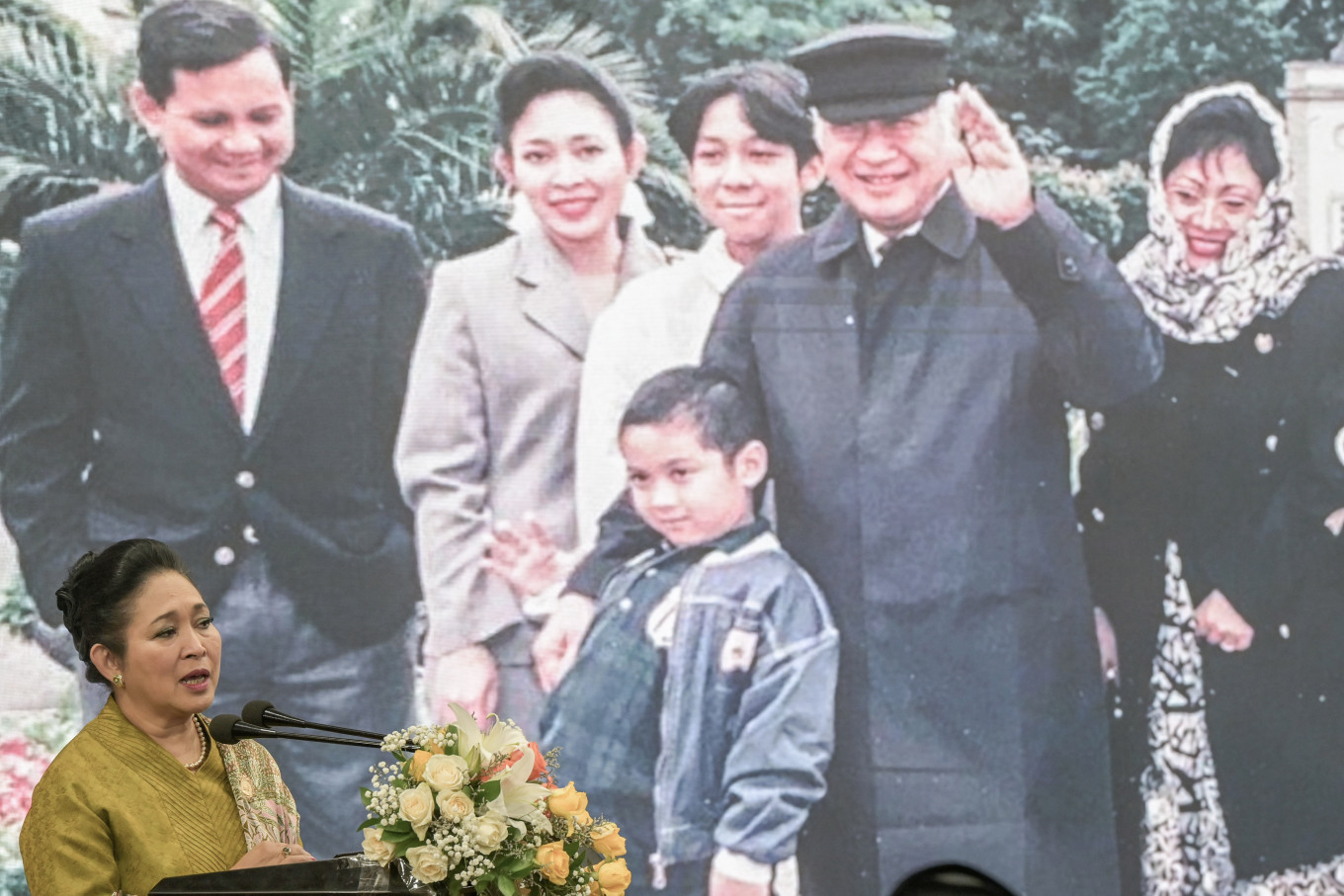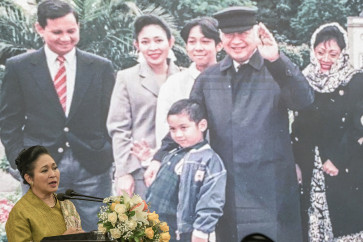Popular Reads
Top Results
Can't find what you're looking for?
View all search resultsPopular Reads
Top Results
Can't find what you're looking for?
View all search resultsErasing the legacy of New Order atrocities for political reconciliation
This MPR decision could be interpreted as a regression that undermines efforts to confront Indonesia's dark history and acknowledge the lingering wounds of the past.
Change text size
Gift Premium Articles
to Anyone
T
he People's Consultative Assembly (MPR) recently removed former dictator Soeharto’s name from MPR Decree No. XI/1998, which addresses the eradication of corruption, collusion and nepotism from state governance. This decision, made amid political pressure and a growing discourse to confer national hero status upon Soeharto, suggests that the issues we face are more profound than mere legal amendments.
Then-MPR speaker, Bambang Soesatyo, of the Golkar Party, which was founded by Soeharto, said this step was a response to a request from the Golkar faction, which was later approved in a MPR leadership meeting on Sept. 23. The revocation was deemed necessary considering Soeharto's passing.
However, by dropping Soeharto from the decree that demands accountability, it seems as though the MPR is granting a moral amnesty for actions that harmed society during his 32-year rule. This undermines the values of reform that should emphasize justice and truth.
Additionally, this revocation may obscure responsibility for human rights violations that occurred under Soeharto's regime. Historical records highlight his role in severe abuses, including political repression, murder and systemic corruption.
This decision could be interpreted as a regression that undermines efforts to confront Indonesia's dark history and acknowledge the lingering wounds of the past. As noted in an International Crisis Group (ICG) report, "The legacy of the Suharto regime remains a significant obstacle to the consolidation of democracy in Indonesia, with persistent issues of corruption, human rights abuses and a lack of accountability for past crimes."
This underscores that despite reforms, the impact of Soeharto's rule continues to affect Indonesia’s political and social landscape.
Furthermore, the removal of Soeharto's name from the MPR decree is a serious effort to pave the way for the discourse on conferring national hero status upon Soeharto, which has been proposed several times. Notably, in 2010, Soeharto was among figures nominated for the hero’s title by the Social Affairs Ministry, and in 2014, presidential candidate Prabowo Subianto pledged to award his former father-in-law this honor during the election campaign.



















